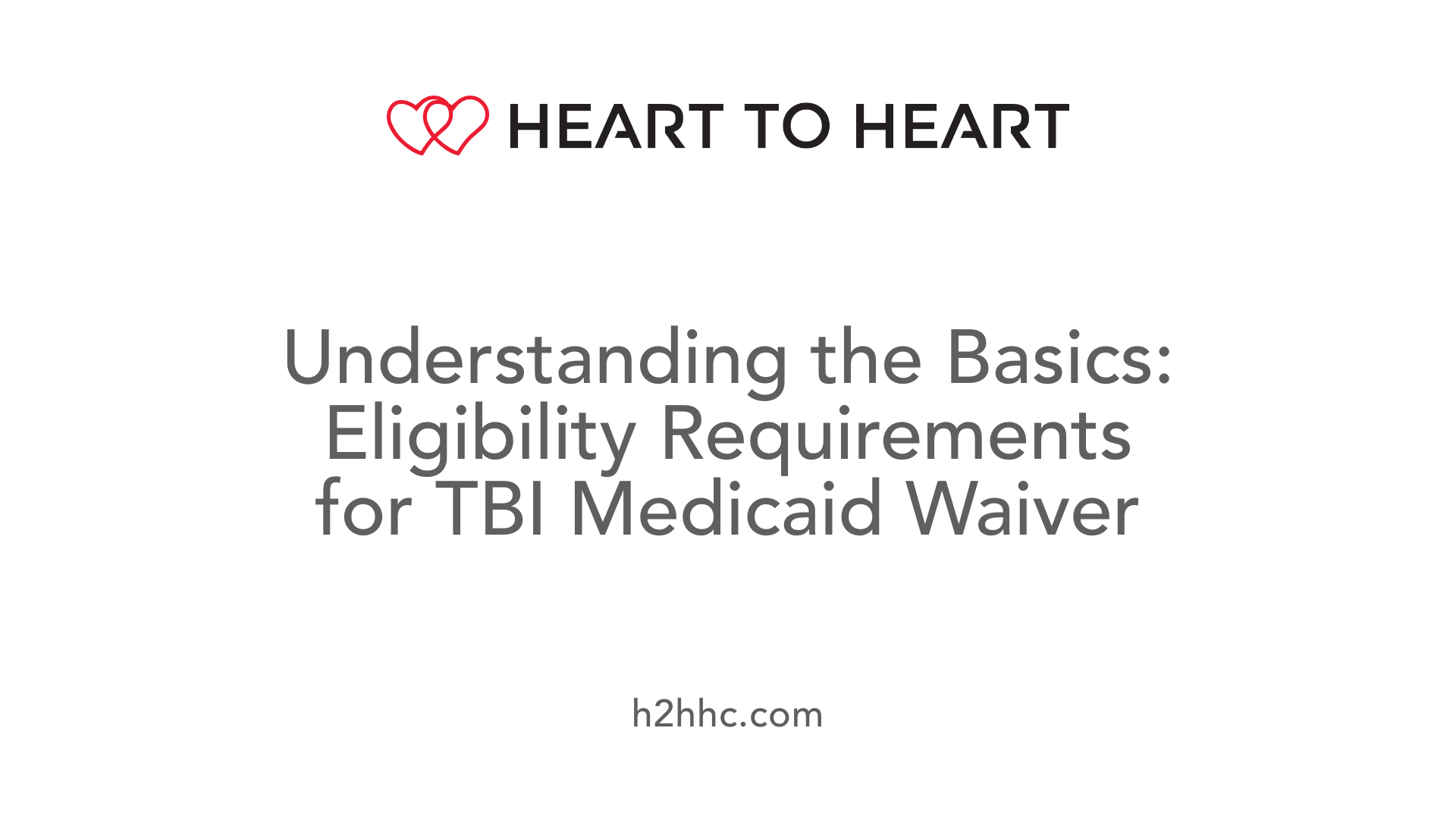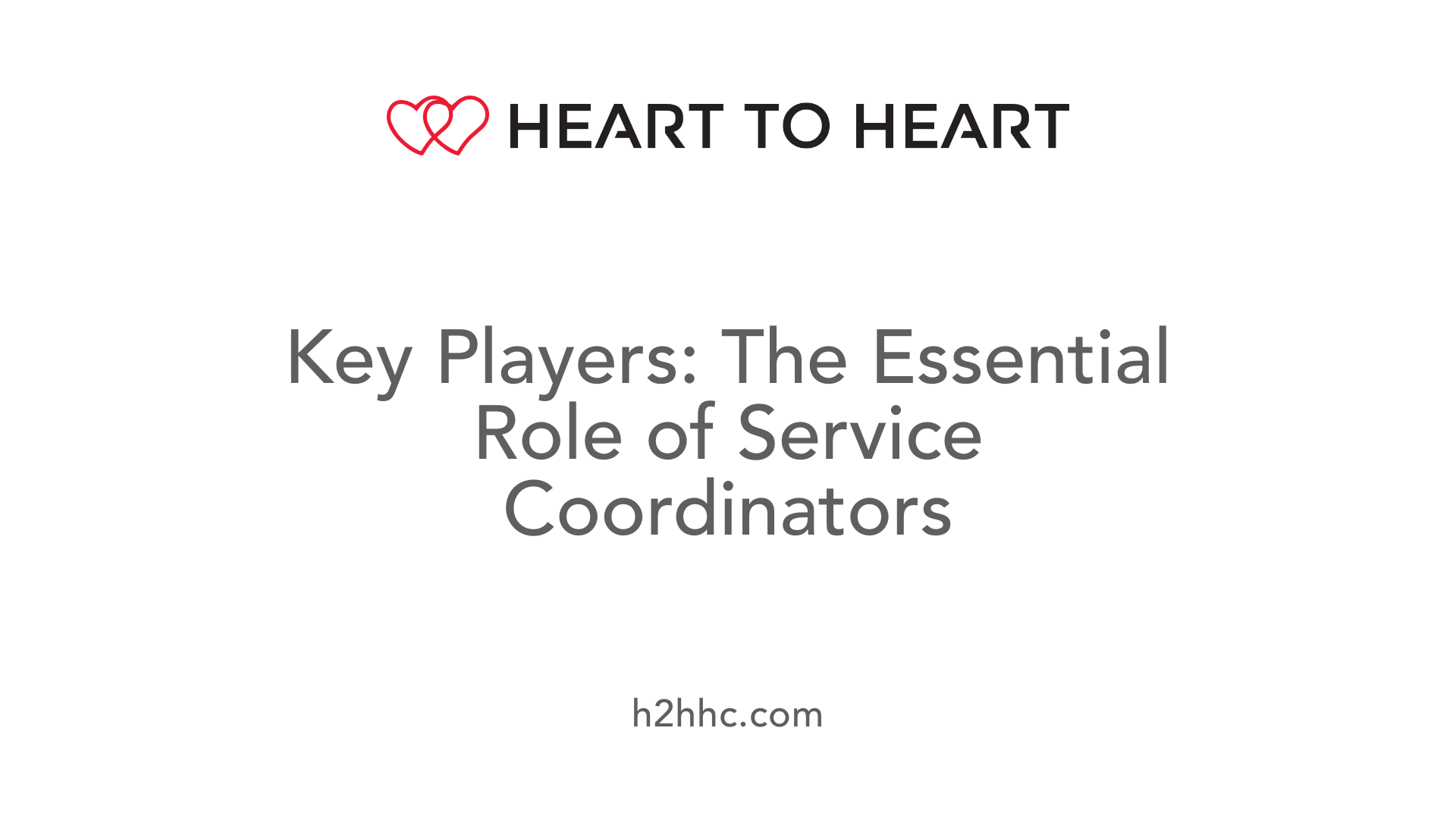Comprehensive Guide to Crafting an Effective Care Plan for TBI Medicaid Waiver Participants
March 31, 2025

The Traumatic Brain Injury (TBI) Medicaid Waiver program is a vital initiative aimed at supporting individuals with traumatic brain injuries by providing essential resources and services tailored to their unique needs. This program allows participants to receive necessary support services in a community setting, encouraging independence and improving quality of life. Our article will delve into the steps necessary to develop an effective care plan under this program, providing guidance to caregivers, family members, and service coordinators involved in this process.

To qualify for the TBI Medicaid Waiver program, several key factors must be addressed, promoting a focus on individual needs.
Applicants must possess a medically documented diagnosis of traumatic brain injury (TBI). This diagnosis is essential as it directly influences the personalized care plans developed under the waiver.
Eligibility extends to individuals aged 18 to 64 years. They must be residents of the state where they are applying, such as New York, which has specific criteria for participants. Documentation must support residency and the need for assistance with daily activities.
Financial criteria for the waiver include adherence to specific income and asset limits established by Medicaid. Additionally, participants must demonstrate the need for a level of care generally provided in a nursing facility. This requirement shows that the individual has significant challenges requiring comprehensive support.
Those seeking enrollment should contact their local Medicaid office to confirm their eligibility according to these outlined criteria. Regular reviews ensure that each individual's service plan meets their ongoing needs and reflects their current living situation.

The TBI Medicaid Waiver program encompasses a wide range of services specifically designed to support individuals with traumatic brain injuries (TBI). These services aim to promote independence and improve the overall quality of life for participants.
Rehabilitation is a core component of the TBI Waiver Program. The services include:
These therapies address the physical, cognitive, and emotional challenges that often accompany a TBI.
Participants of the TBI Waiver can access various support services that facilitate their daily lives:
These services are crucial for maintaining autonomy and managing daily activities effectively.
The program also supports community integration and engagement through:
These resources aim to foster social interaction and independence, aligning with the program’s goal of allowing individuals to thrive in their chosen community settings.
Through these diverse services, the TBI Medicaid Waiver program plays a crucial role in supporting the wellness and autonomy of individuals with traumatic brain injuries.

Service Coordinators play a vital role in the TBI Waiver Program, where they assist individuals in developing personalized service plans. These plans align with each participant's strengths, needs, and preferences, ensuring that care is tailored to promote independence and facilitate community living.
Service Coordinators are responsible for:
The Service Coordinator ensures that all services align with the individual’s unique circumstances. They coordinate various support mechanisms, integrating:
Collaboration is crucial for effective care. Service Coordinators work closely with:
In summary, Service Coordinators are instrumental in navigating the complexities of the TBI Medicaid Waiver Program, ensuring individuals receive comprehensive support tailored to their unique needs.

Developing a care plan under the TBI Medicaid Waiver program involves a collaborative effort. The individual, their family, and a dedicated team of healthcare professionals work closely together. A service coordinator plays a central role in this process, guiding participants in creating a personalized plan based on their needs and preferences.
The creation of the service plan begins with a thorough assessment to understand the unique challenges associated with the individual’s traumatic brain injury. This evaluation covers several crucial areas:
The care plan not only maps out these needs but also includes specific recovery strategies, such as physical activities and cognitive exercises. These activities aim to leverage the brain's neuroplasticity, which is essential in the recovery process.
The assessment process ensures that individual issues, like sleep problems or feelings of depression, are recognized and addressed. Participants are encouraged to express their goals and preferences, fostering a sense of autonomy and supporting overall healthier lifestyles.
Within the care plan, therapeutic activities are integrated to address the diverse aspects of recovery. This holistic approach promotes physical rehabilitation, cognitive development, and emotional healing, making the care plan a comprehensive tool for achieving better outcomes.
Regular reviews of the service plan keep it relevant and adaptable, ensuring that it evolves in tandem with the participant’s progress and changing needs.

A successful care plan under the TBI Waiver Program centers on a comprehensive assessment to identify all required services. This includes medical and therapeutic interventions such as physical therapy, occupational therapy, and counseling, which are specifically tailored to address the individual’s recovery needs. The aim is to ensure that participants receive the right mix of support to foster independence.
Each service within the care plan must have a clearly defined frequency and duration. This detail is crucial in setting expectations and ensuring the participant receives continuity of care. Regular assessments help in adjusting these parameters to adapt to each individual's changing needs over time.
Participants have the opportunity to choose their service providers, promoting personal choice and enhancing satisfaction. Additionally, the care plan requires regular reviews and updates, ensuring that all elements remain relevant and effective. This collaborative approach helps maintain focus on community integration and individual empowerment.
The Traumatic Brain Injury (TBI) Medicaid Waiver program is designed to assist individuals with traumatic brain injuries by providing resources and services tailored to their needs. This program enables participants to receive support in a community setting of their choice, promoting independence and improved quality of life. Services may include personal care assistance, rehabilitation therapies, and access to medical supplies, among other supports. Funded by Medicaid, the program helps to alleviate the financial burden of care associated with TBI. Ultimately, the goal of the waiver is to enhance the ability of individuals with TBI to live successfully within their communities.
Navigating the TBI Waiver system can present several challenges for participants and caregivers. Common obstacles include understanding eligibility requirements, completing paperwork accurately, and coordinating services effectively.
To alleviate these hurdles, individuals seeking participation in the TBI Waiver should work closely with service coordinators. These professionals can help tailor service plans that reflect personal needs and facilitate access to appropriate resources. Gathering necessary documentation beforehand, including medical records and financial information, can ease the application process.
Several resources are available for individuals and families navigating the TBI Waiver program:
To maintain eligibility for the TBI Waiver, it is crucial to ensure compliance with several requirements. Individuals must uphold their Medicaid status and receive regular evaluations to confirm their need for nursing home-level care. Participants should collaborate closely with their service coordinators to regularly update and review their service plans, ensuring they meet evolving needs.
| Service Type | Description | Example Services |
|---|---|---|
| Medical & Therapeutic | Services addressing physical and emotional needs | Physical therapy, speech therapy |
| Daily Living Assistance | Support for everyday activities | Personal care assistance, homemaking |
| Community Integration | Programs to enhance independence | Day programs, employment support |
By staying informed and proactive, individuals can successfully navigate the complexities of the TBI Medicaid Waiver, gaining access to essential services that support their journey toward recovery and independence.
Developing a care plan under the TBI Medicaid Waiver program is a comprehensive process that requires careful consideration of the individual’s unique needs, aspirations, and the available resources. By understanding the eligibility requirements, leveraging the array of services offered, and collaborating effectively with service coordinators, caregivers can craft plans that not only support recovery but also promote long-term independence in community settings. As this article outlines, empowering individuals with traumatic brain injuries through thoughtful care planning is essential for improving outcomes and quality of life.
09:00 AM - 06:00 PM
Monday - Friday
2488 Grand Concourse Suite 409, Bronx, NY, 10458
T: 718-305-5858
F: 718-305-6258
1 Smith Street, 3rd Floor, Brooklyn, New York, 11201
T: 718-305-5959
F: 718-305-6259
2361 Nostrand Ave Suite 401 Brooklyn, NY 11210.
T: 718-305-6060
F: 718-305-6260
576 Central Ave # 301, East Orange, NJ 07018
433 Woodbury Glassboro Road Sewell, NJ 08080
1172 Fischer Blvd, Toms River, NJ 08753
T: (973) 678-5500
njinfo@h2hhc.com








